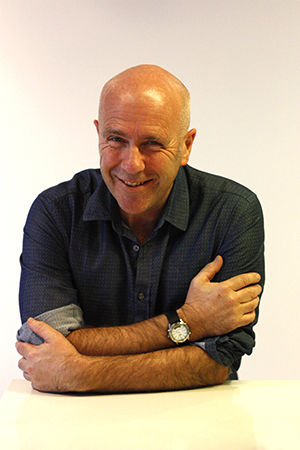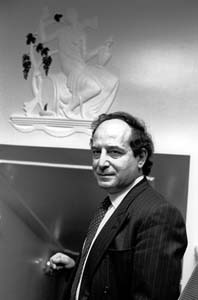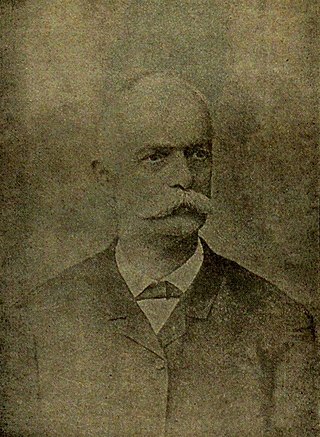
Augusta Ada King, Countess of Lovelace was an English mathematician and writer, chiefly known for her work on Charles Babbage's proposed mechanical general-purpose computer, the Analytical Engine. She was the first to recognise that the machine had applications beyond pure calculation.

Greek is an independent branch of the Indo-European family of languages, native to Greece, Cyprus, Italy, southern Albania, and other regions of the Balkans, the Black Sea coast, Asia Minor, and the Eastern Mediterranean. It has the longest documented history of any Indo-European language, spanning at least 3,400 years of written records. Its writing system is the Greek alphabet, which has been used for approximately 2,800 years; previously, Greek was recorded in writing systems such as Linear B and the Cypriot syllabary. The alphabet arose from the Phoenician script and was in turn the basis of the Latin, Cyrillic, Coptic, Gothic, and many other writing systems.

Gematria is the practice of assigning a numerical value to a name, word or phrase by reading it as a number, or sometimes by using an alphanumerical cipher. The letters of the alphabets involved have standard numerical values, but a word can yield several values if a cipher is used.
Philology is the study of language in oral and written historical sources. It is the intersection of textual criticism, literary criticism, history, and linguistics with strong ties to etymology. Philology is also defined as the study of literary texts and oral and written records, the establishment of their authenticity and their original form, and the determination of their meaning. A person who pursues this kind of study is known as a philologist. In older usage, especially British, philology is more general, covering comparative and historical linguistics.

Cyril and Methodius were brothers, Byzantine Christian theologians and missionaries. For their work evangelizing the Slavs, they are known as the "Apostles to the Slavs".

1834 (MDCCCXXXIV) was a common year starting on Wednesday of the Gregorian calendar and a common year starting on Monday of the Julian calendar, the 1834th year of the Common Era (CE) and Anno Domini (AD) designations, the 834th year of the 2nd millennium, the 34th year of the 19th century, and the 5th year of the 1830s decade. As of the start of 1834, the Gregorian calendar was 12 days ahead of the Julian calendar, which remained in localized use until 1923.

In Greek mythology, Cadmus was the legendary Greek hero and founder of Boeotian Thebes. He was, alongside Perseus and Bellerophon, the greatest hero and slayer of monsters before the days of Heracles. Commonly stated to be a prince of Phoenicia, the son of king Agenor and queen Telephassa of Tyre, the brother of Phoenix, Cilix and Europa, Cadmus traced his origins back to Poseidon and Libya.

Granta is a literary magazine and publisher in the United Kingdom whose mission centres on its "belief in the power and urgency of the story, both in fiction and non-fiction, and the story's supreme ability to describe, illuminate and make real." In 2007, The Observer stated: "In its blend of memoirs and photojournalism, and in its championing of contemporary realist fiction, Granta has its face pressed firmly against the window, determined to witness the world."

The Syriac alphabet is a writing system primarily used to write the Syriac language since the 1st century AD. It is one of the Semitic abjads descending from the Aramaic alphabet through the Palmyrene alphabet, and shares similarities with the Phoenician, Hebrew, Arabic and Sogdian, the precursor and a direct ancestor of the traditional Mongolian scripts.

Ottoman Turkish was the standardized register of the Turkish language in the Ottoman Empire. It borrowed extensively, in all aspects, from Arabic and Persian. It was written in the Ottoman Turkish alphabet. During the peak of Ottoman power, words of foreign origin in Turkish literature in the Ottoman Empire heavily outnumbered native Turkish words, with Arabic and Persian vocabulary accounting for up to 88% of the Ottoman vocabulary in some texts.

Richard Miller Flanagan is an Australian writer, who has also worked as a film director and screenwriter. He won the 2014 Man Booker Prize for his novel The Narrow Road to the Deep North.

Roberto Calasso was an Italian writer and publisher. Apart from his mother tongue, Calasso was fluent in French, English, Spanish, German, Latin and ancient Greek. He also studied Sanskrit. He has been called "a literary institution of one". The fundamental thematic concept of his œuvre is the relationship between myth and the emergence of modern consciousness.

Christian literature is the literary aspect of Christian media, and it constitutes a huge body of extremely varied writing.

Friedrich A. Kittler was a literary scholar and a media theorist. His works relate to media, technology, and the military.

Weihnachten is the observance of what is commonly known in English as Christmas in the German-speaking countries such as Germany, Austria and Switzerland. It is also widespread in countries with a German-speaking minority, such as Transylvania in Romania, South Tyrol in Italy, Eupen in Belgium, and various diasporas such as the German Brazilian and German American communities. Traditions of Weihnachten influenced Advent and Christmastide culture throughout the world.
Jennifer Sheila Uglow is an English biographer, historian, critic and publisher. She was an editorial director of Chatto & Windus. She has written critically acclaimed biographies of Elizabeth Gaskell, William Hogarth, Thomas Bewick, and Edward Lear, and a history and joint biography of the Lunar Society, among others, and has also compiled The Macmillan Dictionary of Women's Biography.

Jani Vreto was an Albanian writer, printer, publisher and important figure of the Albanian National Awakening. He was responsible for setting up and overseeing the work of the first Albanian printing house in Bucharest in 1886.

Sigrid Weigel is a German scholar of literary studies, critical theory, a specialist of cross-disciplinary research, and a leading scholar of Walter Benjamin, Aby Warburg, and the cultural science (Kulturwissenschaft) around 1900. She held professorships at Hamburg, Zürich, and Berlin and established the internationally noted Advanced Studies “Center for Literary and Cultural Research” in Berlin. In 2016, she received the renowned Aby Warburg Prize of the City of Hamburg.
Ottmar Ette is Professor of Romance languages and Comparative literature at University of Potsdam.

Wolfgang Ernst is a German media theorist. He is Professor for Media Theories at Humboldt University of Berlin and a major exponent of media archaeology as a method of scholarly inquiry.

















